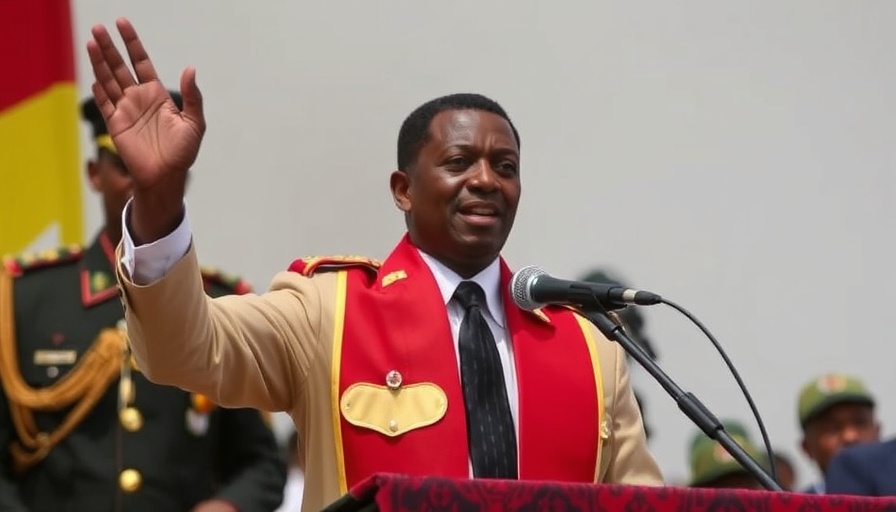
An Unforeseen Military Coup: The Ouster of Madagascar's President
Madagascar stands at a pivotal crossroads following the military's abrupt seizure of power, effectively ousting President Andry Rajoelina amid months of mounting youth-led protests. The protests, ignited by widespread dissatisfaction over prolonged electricity and water outages, quickly morphed into broader anti-government demonstrations highlighting pervasive corruption and socio-economic grievances faced by the vast majority of the island's population.
The Context of Unrest: Why Did It Come to This?
The apex of these protests was reached over the weekend when members of the elite military unit, CAPSAT, joined the protestors, marking a critical shift in the power dynamics within Madagascar. Historically, Rajoelina himself ascended to power through a military-backed coup in 2009, raising important questions about the cyclical nature of political strife on the island. Under Rajoelina’s leadership, the country struggled to break free from a cycle of poverty and political instability—a challenge that has persisted since gaining independence from France in 1960.
Youth-led Movements: A Generation Rising to Demand Change
The current wave of protests is emblematic of a broader trend among Gen Z and younger generations throughout Africa, as they demand more accountable governance amid worsening economic prospects. In Madagascar, about 75% of its 30 million citizens live below the poverty line, a grim statistic that has motivated citizens, particularly the youth, to take to the streets. Protesters have expressed frustration over the cost of living and shrinking opportunities, insisting that their country deserves a government responsive to their needs.
The Role of Global Dynamics in Madagascar's Crisis
While the immediate trigger for the unrest was domestic issues, the broader context of Africa's geopolitical landscape cannot be ignored. Madagascar's political upheaval is part of a larger narrative involving foreign relations, particularly with powers like France and China, who have vested interests in the region’s resources. This military takeover could potentially shift diplomatic ties and alter existing trade agreements, especially given Madagascar's prominence as a leading supplier of global vanilla.
Future Implications: What Lies Ahead for Madagascar?
With Col. Michael Randrianirina announcing that the military will form a transitional government and hold elections within two years, many are left questioning the legitimacy of this new regime. The international community has responded cautiously, with the African Union denouncing any unconstitutional change in government. Given the history of political instability in Madagascar, any hopes for a peaceful resolution must navigate the tricky waters of military governance and civil unrest.
For business leaders and investors, understanding the potential risks and opportunities within this new landscape will be critical in the coming months. With ongoing civil unrest likely to impact economic prospects, a close eye on Madagascar's governance and international relations will offer insights into the evolving dynamics of trade and foreign investment in the region. Additionally, as Madagascar confronts these challenges, the need for constructive engagement from both the domestic and foreign fronts will be essential for nurturing a return to stability.
 Add Row
Add Row  Add
Add 


Write A Comment